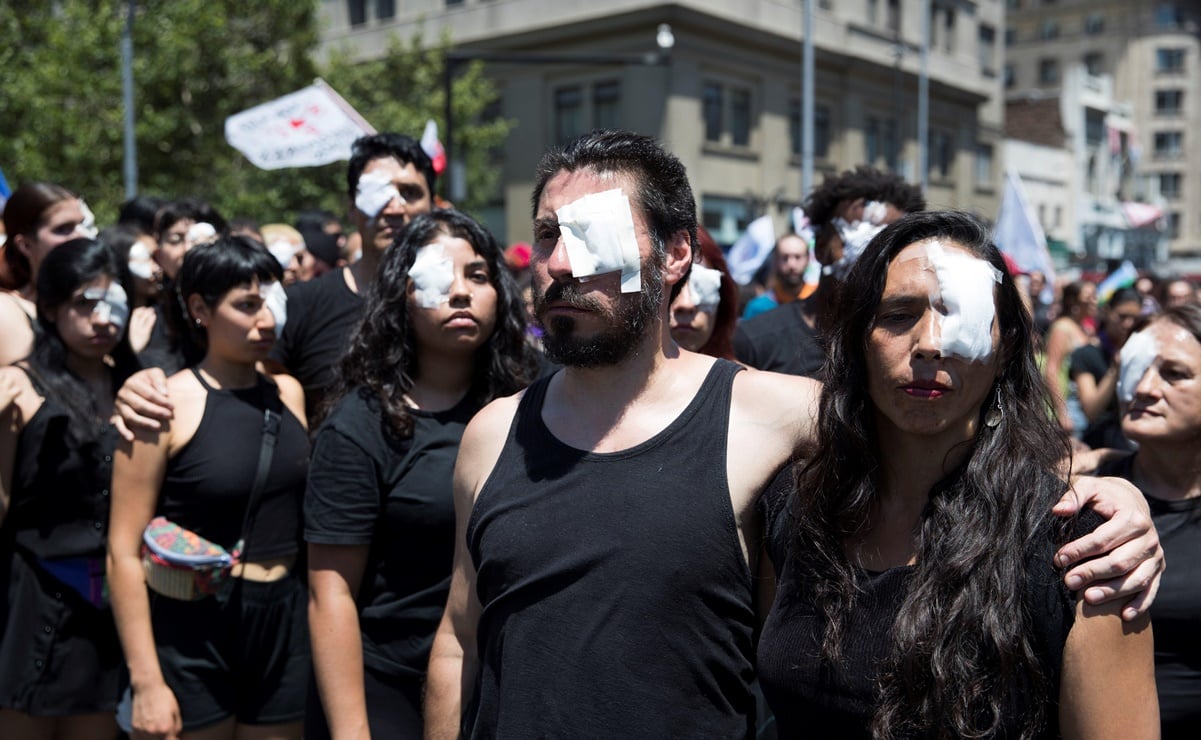
Canadian Regime Stop the Use of Remote Mind Control Weapons: Presently, thousands of individuals, from all walks of life, are claiming that they have become targets of assault and attempted murder by our secret government agencies and police hierarchy via the use of these weapons.
Latin America explodes
x Manuel Castells: When there is a change in social power (even if the economic one is respected) the elites' last resort is always violence
Ecuador, Chile, Bolivia, Colombia. The streets protest where the bridges with the institutions have broken. A dense cloud of tear gas, mixed with ambient pollution, makes the air irrespirable. Each protest has a specific cause, but similar forms of expression. Young people, men and women, are avant-garde. They have lost their fear and fight for their elders. Their digital networks 'empower' and mobilize them, they don't need leaders. The police repression is very violent. The panoply of means of harm is multiplied. Gadgets that burst eyes, fracture skulls, asphyxiate lungs, disfigure faces. And when they are not enough, bullets.
The death count goes up. But protesters have lost their fear and face the police with increasing violence. In the heat of the protest, there are those who take advantage to loot supermarkets or burn symbolic buildings and even hospitals. And attack police stations. Despite the violence, a majority of citizens still support the protest. In Chile, Ecuador and Colombia it is a revolt against the appropriation of economic growth by a minority that also barely pays taxes and leaves health, education and pensions to the logic of the market. There is clear awareness of rejection of a hegemonic economic model in institutions.
A student leader said: "Neoliberalism was born in Chile and will die in Chile." And others add consumerism, that trap in which they end up unsustainably indebted because advertising decoys do not correspond to salaries. The spark was the rise in gasoline in Ecuador or the increase in the price of the metro in Santiago. By private companies, backed by the Government. In Colombia, a country that has overcome fear after the uncertain peace, students ask for access to the university, while resources allocated to education decrease.
But also the caceroladas and demonstrations cry out against rising unemployment. And against the permanent health crisis and, as everywhere else, against miserable pensions that condemn millions of elderly people to poverty. Free market for a tremendously unequal society in which social injustice is the habit of oligarchies that institutions always used to defend their privileges. The social demands are joined by the clamor for dignity and respect for human rights, starting with women and the freedom to decide who they love. Bogotá has just elected mayor to an ecologist and humanist lesbian leader greeted enthusiastically by youth.
At the root of the conflict is social inequality, the failure of neoliberalism and the institutional crisis
Violence in Bolivia has a different and more threatening origin. Because it is a country in which the economic growth of the last decade has been accompanied by a substantial reduction in poverty and an improvement in the living conditions of the population as a whole under the leadership of Evo Morales. But at the same time there was a profound social transformation: the natives came to power, with the cholas at the forefront of state institutions and an absolute majority in the democratically elected Congress. The white elite could not tolerate it.
The conflict in Bolivia is fundamentally racial. Although the opposition was supported in the outbreaks of corruption in the State, the arrogance of the MAS party and the maneuvers of Evo to stay in power, including, perhaps, electoral fraud. But Morales offered to repeat the elections and not show up. Even so, the conspiracy that was already underway, including popular demonstrations orchestrated by fundamentalist religious leaders, led the military hierarchy to force the constitutional president to resign and exile. Bolsonaro's hand seems likely, pulled by Trump. Against that coup, part of Bolivia exploded, both in the coca-growing regions of Cochabamba and in El Alto, a concentration of indigenous people in La Paz. The army reacted by shooting and killing, returning to the sinister history of Bolivia, the country with the most coups in Latin America.
Those of us who thought that stage was over must accept that when there is a change in social power (even if the economic one is respected) the last resort of the elites is always the monopoly of violence.
Meanwhile, in Chile, senseless violence is unleashed in a frenzy of destruction, fueled by perhaps manipulated narco groups and a multiform popular rage. The army may be deployed in the streets at the request of an overflowing Piñera. And if there are no reforms soon and the protest continues, an authoritarian regression could happen.

The police repression is very violent. The panoply of means of harm is multiplied. Gadgets that burst eyes, fracture skulls, asphyxiate lungs, disfigure faces. And when they are not enough, bullets.
At the root of the Latin American outbreak, to which a politically destabilized Peru could be added and from which Argentina was spared by popular hope in Alberto Fernández, there are three intertwined phenomena: extreme social inequality; the failure, once again, of neoliberal policies that impose strict market logic not only on the economy but on society as a whole, and the breakdown of citizen confidence in political institutions, whose representativeness rejects 83% of the population in the region as a whole. In that context, cathapardism ("change something so that everything stays the same") does not seem to be enough anymore. The shock waves of the current outbreak could expand in time and space, with unpredictable consequences.
The vanguard
No comments:
Post a Comment